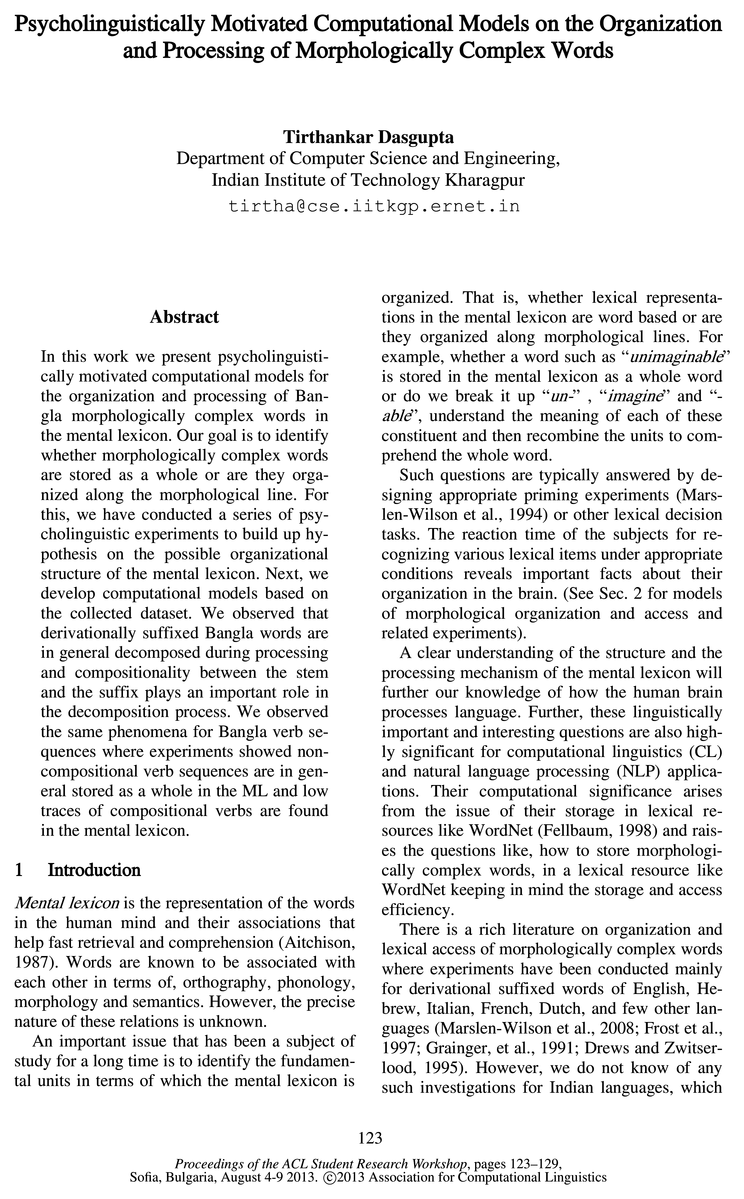Article Structure
Abstract
In this work we present psycholinguisti-cally motivated computational models for the organization and processing of Bangla morphologically complex words in the mental lexicon.
Introduction
Mental lexicon is the representation of the words in the human mind and their associations that help fast retrieval and comprehension (Aitchison, 1987).
Related Works
2.1 Representation of polymorphemic words
The Proposed Approaches 3.1 The psycholinguistic experiments
We apply two different priming experiments namely, the cross modal priming and masked priming experiment discussed in (Forster and Davis, 1984; Rastle et al., 2000;Marslen—Wilson et al., 1994; Marslen—Wilson et al., 2008) for Bangla morphologically complex words.
Topics
proposed model
- However, the proposed model still fails to predict processing of around 32% of words.Page 4, “The Proposed Approaches 3.1 The psycholinguistic experiments”
- The evaluation of the proposed model returns an accuracy of 76% which comes to be 8% better than the preceding models.Page 5, “The Proposed Approaches 3.1 The psycholinguistic experiments”
- We believe much more rigorous experiments are needed to be performed in order to validate our proposed models .Page 5, “The Proposed Approaches 3.1 The psycholinguistic experiments”
See all papers in Proc. ACL 2013 that mention proposed model.
See all papers in Proc. ACL that mention proposed model.
Back to top.

